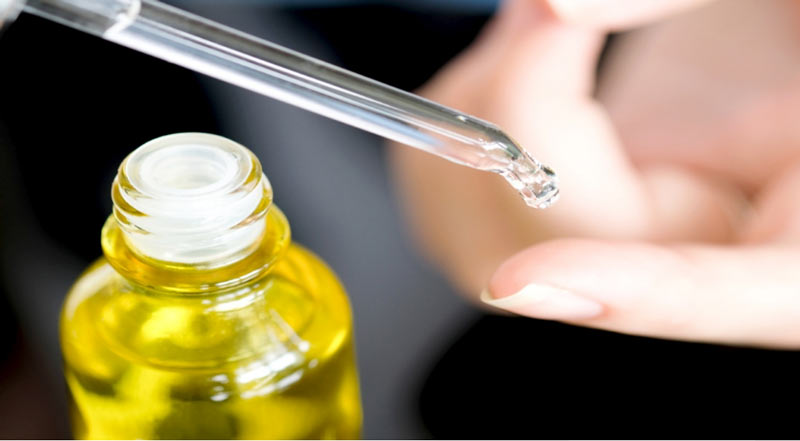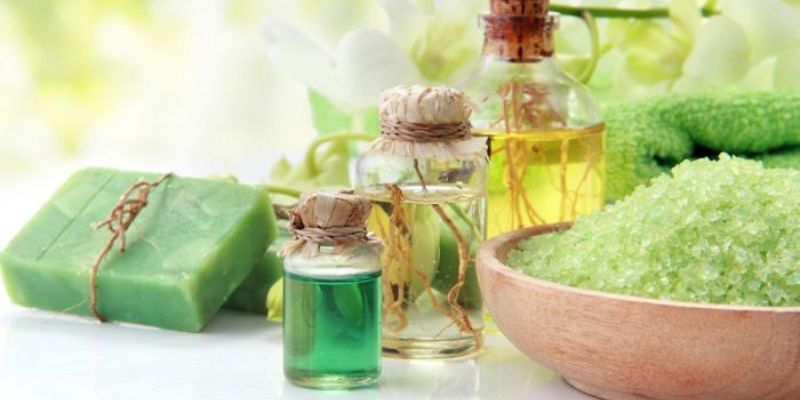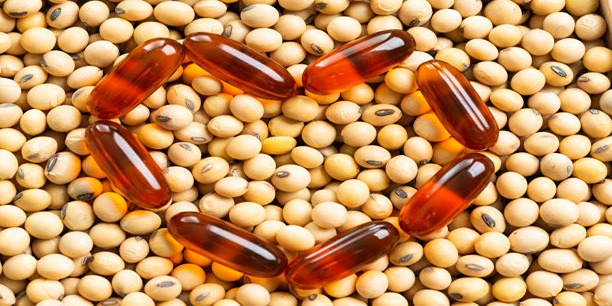Have you heard of mineral oil? Mineral oil is a colorless and odorless substance made from petroleum that has many uses in the automotive, health, cosmetic, and manufacturing industries. A common question about mineral oil is, “what is it used for?”
So in this blog post, we will explore mineral oil and why it's so widely used across multiple industries today! We'll discuss its physical properties, available forms, and some of the most popular applications of this multi-purpose liquid. So let’s dive into one of the most versatile substances: mineral oil!
Understanding Mineral Oil
Mineral oil, or liquid paraffin or white mineral oil, is a colorless and odorless petroleum-derived substance. It consists of a mixture of hydrocarbons ranging in different lengths and structures that come together to form this type of oil. Its chemical composition varies depending on the specific process used for its extraction, which can vary from manufacturer to manufacturer.
The physical characteristics of mineral oil include high lubricity, low viscosity, thermal stability, low surface tension, and non-toxicity when used in moderate amounts. These properties make it suitable for use across multiple industries, such as automotive manufacturing, health care products, cosmetics, etc.
Health Benefits of Mineral Oil
1. Skin moisturizer
Mineral oil has become a popular choice for skin care products as it is an effective skin moisturizer. It helps soften and protect the skin while locking in moisture, keeping it from drying out.
2. Treatment for diaper rash
As mineral oil is non-irritating, it can be used to soothe inflamed skin caused by diaper rash or other forms of irritation.
3. Psoriasis relief
Psoriasis is a common inflammatory condition that causes redness and flaking of the skin, which can be relieved with topical mineral oil applications.
4. Prevents stretch marks
Minerals oil helps keep skin soft, supple, and elastic, reducing the risk of stretch marks due to sudden changes in weight or pregnancy.
5. Treats cradle cap
Cradle cap is a common condition that affects infants and is characterized by patches of crusty yellowish-white scales on their scalp. Applying mineral oil to the affected area will help remove these flakes naturally.
6. Relieves earache and prevents infection
Mineral oil can clean out ears as it is an effective lubricant, helping remove wax buildup and preventing ear infections.
7. Treats constipation
If taken orally, mineral oil lubricates the intestines and softens stools, making bowel movements easier. This helps to treat constipation in adults as well as children.
8. Treats lice
Mineral oil can be used as part of a lice treatment regimen because it suffocates adult lice and their eggs.
9. Regulates cholesterol levels
Research has found that taking mineral oil regularly helps reduce cholesterol levels in the body by preventing it from being reabsorbed into the intestine.
10. Removes makeup residues
A few drops of mineral oil can help remove stubborn makeup residues on your skin without stripping away essential oils or leaving any greasy feeling behind.
Most Common Types of Mineral Oil
1. Light Mineral Oil
Light mineral oil (LMO) is a clear, light, low-viscosity liquid with a wide range of applications in the manufacturing and automotive industries. It is also used as a lubricant, waterproofing agent, and diluent for paints, waxes, and polishes.
2. Heavy Mineral Oil
Heavy mineral oil (HMO) is a thicker form of mineral oil with higher viscosity levels than its lighter counterpart. It's often used in cosmetics and skincare products because it can penetrate deeper into the skin’s surface layers without leaving an oily residue.
3. Paraffin Oil
Paraffin oil is another type of mineral oil that is used as a lubricant in the manufacturing industry. It provides superior lubricity and corrosion protection, making it an ideal choice for many applications.
4. White Mineral Oil
White mineral oil (WMO) is a highly refined form of lubricant that is colorless, odorless and has excellent dielectric properties. It's often used in electrical equipment that helps reduce arcing, spark formation, and other safety issues.
Popular Applications of Mineral Oil
1. Automotive Manufacturing
Mineral oil is widely used in automotive manufacturing due to its high thermal stability, low viscosity, and non-toxicity properties. It can be used as a hydraulic fluid or lubricant for engines, transmissions, and other automotive parts.
2. Health Care Products
In the healthcare industry, mineral oil is often added to products such as laxatives, ointments,s, and topical creams to relieve dryness, itching,g, and burning on the skin. It's also known to reduce the risk of infection by preventing bacteria and fungi from growing on the skin's surface.
3. Cosmetics
Due to its non-greasy properties, mineral oil is an ideal choice for cosmetics, such as lip balms, foundations, and makeup removers. As it forms a protective barrier on the skin, it helps lock in moisture while protecting against environmental aggressors like pollutants and dirt particles.
4. Pharmaceuticals
Mineral oil has long been used as a pharmaceutical ingredient due to its safety profile and efficacy in treating various conditions. It can be found in cough syrups, laxatives, anti-fungal ointments, and more.
5. Manufacturing
In manufacturing, mineral oil is used as a lubricant for cutting tools, bearings and pumps. It's also known to provide superior corrosion protection for metal components while still maintaining excellent thermal stability.
6. Agriculture
Mineral oil is commonly used in agriculture to help prevent crops from freezing during cold winters or protect them from fungal growth caused by dampness. It works as an effective insect repellent, keeping harmful insects away from plants and protecting them from damage.
7. Woodworking Industry
Woodworkers use mineral oil to finish furniture pieces due to their non-toxic nature and ability to bring out the natural beauty of wood grain without darkening it over time. It's also often used to clean and lubricate tools, helping them last longer and perform better.
8. Marine Industry
Mineral oil is essential in the marine industry as it helps protect boat engines from corrosion caused by saltwater exposure. It can also be used as a fuel additive or lubricant for marine equipment like outboard motors and pumps.
9. Food Processing
In food processing, mineral oil is often added to processed foods such as baked goods and snacks for its preservative properties or used to help give them a glossy texture and sheen.
Possible Side Effects and Precautions
While mineral oil is generally safe, it can cause skin irritation in some individuals. It's important to remember that if you are allergic to petroleum products, you should not apply mineral oil on your skin or take it orally, as it may result in an adverse reaction.
Additionally, taking too much of this substance may lead to diarrhea and nausea. So always consult your physician before using mineral oil or ingesting large amounts of it.
FAQs
Q. What is mineral oil usually used for?
A. Mineral oil is a versatile liquid used in many industries, such as automotive, health, cosmetics, and manufacturing. It can be used as a lubricant, coolant, or sealant for machinery, as an ingredient in health and beauty products, and even for cleaning electronic components. Additionally, mineral oil is also used to reduce friction between metal parts by acting as a protective barrier. Its non-toxic and biodegradable properties make it ideal for many manufacturing processes.
Q. What are the physical properties of mineral oil?
A. Mineral oil is a clear, colorless, and odorless liquid from petroleum. It has a low viscosity, meaning it is relatively thin or runny compared to other oils, and can be used as a lubricant for many applications.
In addition, it has good thermal stability with a high flash point of approximately 400° F (204° C) and therefore does not easily burn or break down under normal temperatures. Finally, mineral oil is insoluble in water, making it ideal for many cleaning processes.
Q. Are there different forms of mineral oil?
A. Yes! Depending on its level of refinement, mineral oil may come in several forms, such as light paraffin oil, heavy paraffin oil, and paraffin wax. Light paraffin oils have a light viscosity and can lubricate small moving parts, while heavier paraffin oils are used for larger machinery operations. Paraffin wax is created through fractional distillation, producing a thicker, more solid form of mineral oil that can act as an insulator or sealant in many applications.
Conclusion
Mineral oil is an incredibly versatile liquid with many uses across many industries. Depending on the specific application, it can be used in various ways, from automotive manufacturing to health care products. Its non-toxic and biodegradable properties make it suitable for many processes, and its excellent dielectric properties help protect against arcing and spark formation. All these factors make mineral oil an ideal choice for many industrial needs today!





